
The Adventist Health Study results found that patients who were vegetarians had a lower risk of medium-frequency cancers.

Your AI-Trained Oncology Knowledge Connection!


The Adventist Health Study results found that patients who were vegetarians had a lower risk of medium-frequency cancers.

68Ga-FAPI-46 PET’s SUVpeak was highest in patients with pancreaticobiliary cancer, sarcoma, lung cancer, and esophageal/gastrointestinal cancer.

Compared with 18F-FDG, the use of 68Ga-NODAGA-LM3 appears to favor bone and brain lesion detection among patients with small cell lung cancer.

Data from part B of the DeFianCe study demonstrate a positive overall response rate trend with sirexatamab plus bevacizumab and chemotherapy.

The FDA had reduced driving and geographic restrictions to 2 weeks for patients with lymphomas and multiple myeloma receiving liso-cel and ide-cel.


Tumor penetration of atigotatug in fuc-GM1-positive lung, liver, and bone lesions was observed in those with extensive-stage small cell lung cancer.
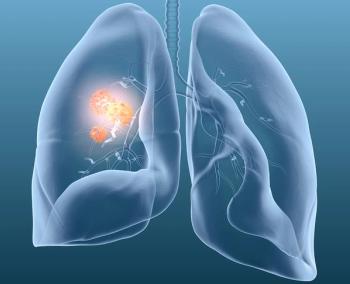
Larger multi-center trials could further elucidate the long-term outcomes of anlotinib plus immune checkpoint inhibition in this patient group.
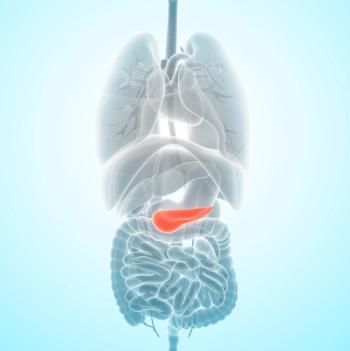
Findings from the phase 2b ASCEND trial will be presented at the European Society for Medical Oncology Gastrointestinal Cancers Congress on July 2, 2025.

Elraglusib plus gemcitabine and nab-paclitaxel demonstrated a median OS of 12.5 months vs 8.5 months with chemotherapy alone in patients with PDAC.
![“If you have a [patient in the] fourth or fifth line, [JNJ-5322] could be a valid drug of choice,” said Rakesh Popat, BSc, MBBS, MRCP, FRCPath, PhD.](https://cdn.sanity.io/images/0vv8moc6/cancernetwork/267879fc15a40ec8d3ed04d8ee9c1f044b49ee89-2990x1692.png?w=350&fit=crop&auto=format)
“If you have a [patient in the] fourth or fifth line, [JNJ-5322] could be a valid drug of choice,” said Rakesh Popat, MBBS, PhD, MRCP, FRCPath.

Twenty-two of 27 injected tumors across all patients with soft tissue sarcoma in the study showed complete or partial ablation.

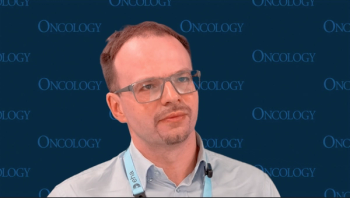
Earlier treatment with daratumumab may be better tolerated for patients with pretreated MRD-negative multiple myeloma.

PATHFINDER 2 data build upon bolstered cancer detection rates by the multicancer early detection test found in a previously published PATHFINDER study.

Detalimogene voraplasmid demonstrated a 71% anytime CR rate in this non–muscle-invasive bladder cancer population in the phase 1/2 LEGEND trial.
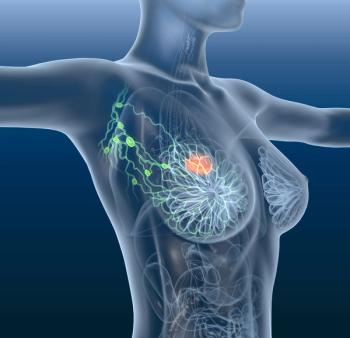
Survivors of breast cancer face increased cardiovascular risks due to treatment-related cardiotoxicity, and understanding these risks is crucial for effective management and prevention.

The trispecific antibody JNJ-5322 demonstrated superior efficacy vs approved agents in multiple myeloma in results shared at the EHA 2025 Congress.
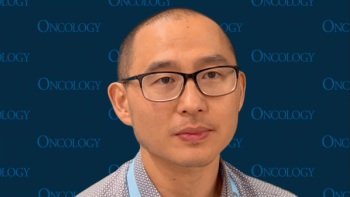
Despite CD19 CAR T-cell therapy exhibiting efficacy in patients with relapsed/refractory large B-cell lymphoma, less than half achieve long-term remission.

Administering precision-selected donor regulatory T-cell therapy significantly improves GVHD-free, relapse-free survival in patients undergoing allogeneic HCT.

Among 77 enrolled patients, the cumulative incidence of grades 2 to 4 aGVHD at day 100 post-transplantation was 18.2% (95% CI, 10.6–27.6%).
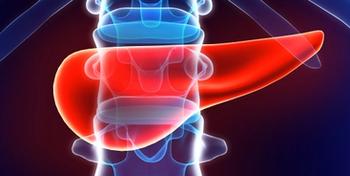
Stereotactic online adaptive magnetic resonance–guided radiation therapy was well tolerated and maintained stable QOL in patients with PDAC for up to 1 year.

Jorge Nieva, MD, discusses how clinical experience has shown that taletrectinib is manageable and can elicit responses in patients with ROS1-positive non–small cell lung cancer.

The FDA has set a Prescription Drug User Fee Act date of October 25, 2025, for approving revumenib in this acute myeloid leukemia population.

Experts in the oncology field focused on ways to balance the transition from resident/fellow to attending.

AI transforms non-small cell lung cancer management, enhancing diagnostics, treatment predictions, and personalized care strategies for improved patient outcomes.


225Ac-LNC1011 targeted α therapy elicited an ORR of 50.0% in patients with PSMA-positive prostate cancer in a phase 1 trial.

Retrospective analysis at SNMMI 2025 revealed α-FRT with 225AC-3BP-3940 was well tolerated and elicited responses in pretreated metastatic breast cancer.

Developers plan to begin a rolling new drug application for zidesamtinib as a treatment for this non–small cell lung cancer population in July 2025.